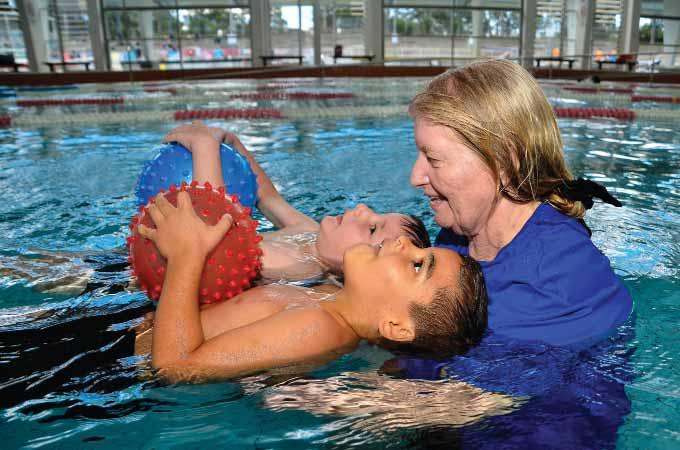
7 minute read
Enough Staff to go round?
Nigel Benton looks into the contradiction of the industry facing staff shortages and job losses
Amid the many uncertainties that almost every sector across the leisure industry has endured through the Coronavirus pandemic, with levels of vaccinations rising and prospects for borders and economies reopening, challenges relating to the industry’s workforce are starting to loom large.
Advertisement
While some pockets of the industry have fared well during the pandemic, most have struggled enormously, being forced to close, pivot, adapt and reopen then close again - looking to make the most of Federal and State government assistance packages to survive and maintain workers.
However, with the large numbers of predicted job losses when the Federal Government’s JobKeeper program ended in March appearing not to have occurred, with workers being stood down rather than made redundant during subsequent lockdowns.
Contrary to jobs being lost, an inability to fill job vacancies led to one of the abiding industry images of recent months - that of fans at Perth’s Optus Stadium for AFL semi-final between Geelong and the GWS Giants waiting in long queues times at food and beverage (F&B) concessions due to lack of staff.
This echoed what many regional tourism and hospitality operators had experienced following the first lockdowns of 2020, as the rise of in-state tourism activity stretched workforces.
Explaining the labour shortage facing the venue, Optus Stadium Chief Executive, Mike McKenna stated “we’ve had demand for people who normally work these jobs, casual workers throughout the hotels, restaurants, bars, and up and down the state and tourist locations, and we just don’t have enough people anymore.
“We’ve lost the backpackers and the overseas students who put in so many hours in these type of jobs.”
Stepping up recruitment for later games in the AFL finals series, operator VenuesLive has used recruitment websites and social media in its search for staff, offering free parking and meal incentives and a draw in which the winner will be flown to Melbourne and given tickets to next year’s AFL Grand Final. It also pooled workers from other Perth venues, including staff from RAC Arena, and even local governments.
Peak national body the Australian Regional Tourism (ART) has gone on to call for Federal Government leadership to address the issue of skills and workforce shortages, which it says will be “the next crisis to hit the regions”.
ART says skills and workforce shortages across regional Australia will restrict business recovery as the easing of lockdown restrictions apply, and the rebuilding of what was once an industry worth $138 billion, attributing to one in 12 jobs nationally, and closer to one in six jobs in some regions.
ART Chair, Coralie Bell explained “the regional tourism industry has been calling on the Federal Government to address skills and workforce shortages in regions as a key National priority since 2017, warning that there will soon be a breaking point, we are furious that after so many years, we’re still having the same conversation.
“Regional Australia needs a National Framework to address skills and workforce shortages now. We have states reporting that some regions are expecting record numbers on the easing of COVID restrictions, while industry is reporting they can’t open their doors because they don’t have staff.
“Let me be very clear. Our industry is facing the largest national skills and workforce shortage in living memory. This is not new. This was true before COVID and it remains so now, more than ever.”

Swim teacher image courtesy of AUSTSWIM.

Another sector impacted is aquatics.
Earlier this year, Australian Swimming Coaches and Teachers Association (ASCTA) identified a massive shortage of swim teachers as putting young children at risk with swim schools across the country scrambling to find suitable staff and reporting long waiting lists for lessons as a result.
Estimating a need for at least 2000 swimming teachers across Australia and highlighting that extra training courses were being implemented, ASCTA Chief Executive, Brendon Ward stated “we lost a lot of swim teachers during COVID as pools were closed and many were ineligible for JobKeeper and sought alternative employment in other sectors.
“As a result, we are now seeing average waiting lists for swim lessons 20% higher than they were pre-COVID and many swim schools cannot even cater for their existing customer base.”
Even as aquatic facilities in Greater Sydney reopen for swimming lessons and squad training as of early October, with staff having been stood down or redeployed during the lockdown, reports have suggested that facilities may face staff shortages.
Advising that staff had moved into other industries that had been less impacted by COVID-19, Belgravia Leisure Area Manager - South West NSW, Scott Vanderheyden explained “in the last 17 months, the COVID closures and restrictions have meant that only 42 weeks of lessons out of a possible 70 weeks of swimming lessons were conducted. This has meant that swimming teachers have been unable to work for 40% of their time in the last 17 months.”
Associa te Professor Richard Robinson of the University of Queensland Business School has been investigating the impact of COVID-19 on Queensland’s tourism workforce and developing a crisis resilience and recovery plan with the support of the Queensland Government.
Commenting on what he found, the UQ Business School researcher advised “tourism operators are really struggling to get workers in their regions due to the uncertainty of domestic and international border closures.”
Associate Professor Robinson said Tropical North Queensland operators had suffered the most with a loss of both international tourists and the international labour market, such as working holiday makers and that businesses in marine and Indigenous tourism were most impacted.
He went on to explain “the key concerns that came up in the consultations were mostly around job security, financial hardship, wellbeing and skilled labour shortages.
“We are working on strategies for recovery and resilience, focused on three industry groups who experience the crisis differently - employees, businesses, and stakeholders - to support a staged recovery from COVID-19 impacts and develop workforce resilience.” Financial supports like JobKeeper improved work opportunities and a strong sense of community helped boost workforce confidence in mid2020, but it has since declined again in 2021 due to continuous lockdowns and border closures. Yet job losses continue with the Tourism and Transport Forum (TTF) predicting in August that more than 3,000 Tropical North Queensland tourism jobs are likely to be lost by Christmas - shrinking the tourism workforce to half its pre-pandemic size. Commenting on this, Tourism Tropical North Queensland (TTNQ) Chief Executive, Mark Olsen explained “by July 2021, we had lost 3,600 permanent staff, even with the support of JobKeeper and a returning domestic market.
“The region grew its workforce across the entire supply chain ready for a busy winter, but now these new recruits, including more than 200 from the tourism industry, who have been in training for months are being told to find other work.
“Government needs to understand how significant this impact will be on our community where one in five jobs have depended on tourism.”
Advance Cairns Chief Executive, Paul Sparshott said the ability for the regional economy to recover would be greatly reduced if skilled staff were lost to the tourism and hospitality sector, noting “there will be far reaching ramifications. When tourism markets are severely impacted it flows through to other industries affecting the whole regional economy.”
Olsen went on to say “without customers, businesses do not have the turnover to keep their highly skilled staff, some of whom have received years of training in specialised areas to become the skippers, dive masters and jump masters that provide the region’s signature tourism experiences.
“Most businesses are running at less than 5% of their normal revenues … and most venues are on limited trading hours, while others have gone into hibernation.
“Consumers have lost confidence in booking travel interstate and far from home, with nearly 60% of Australian travellers unlikely to cross their state border according to new data from the Queensland Tourism Industry Council.
“With half of our domestic travel coming from interstate before lockdown, the closing of borders will continue to have a dramatic impact on our region.”
In the arts, as reported in the article ‘Boot up the Arts’ in last issue of Australasian Leisure Management, the loss of jobs and the exodus of skilled live performance workers into other parts of the economy will blight Australia’s culture sector for years.
Suggesting that the industry’s value proposition won’t bring staff back, particularly for highly skilled workers, Associate Professor Robinson of the University of Queensland Business School suggests that addressing the aspirations of its workforce is a major issue of the industry.
He suggests that the “leisure and tourism industry has traditionally talked about wanting ‘flexibility’ in its workforce but to workers flexibility is seen as representing insecurity and without serious dialogue this will continue.” Nigel Benton is Publisher of Australasian Leisure Management.










